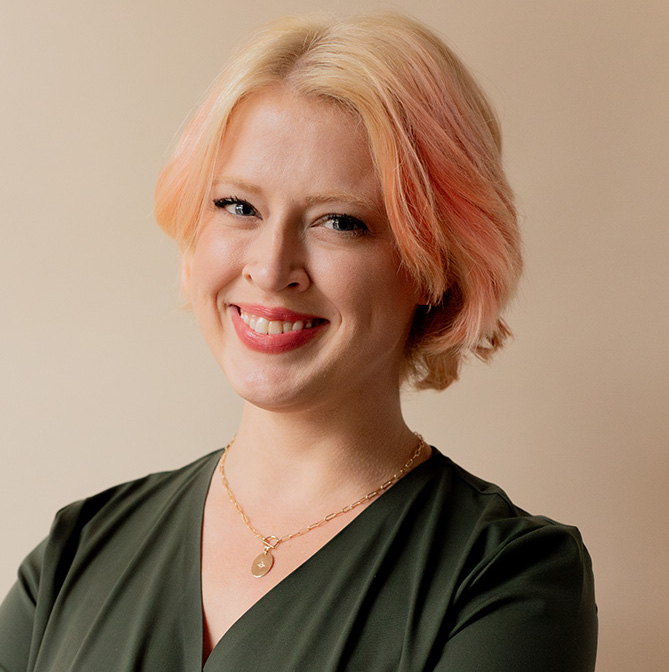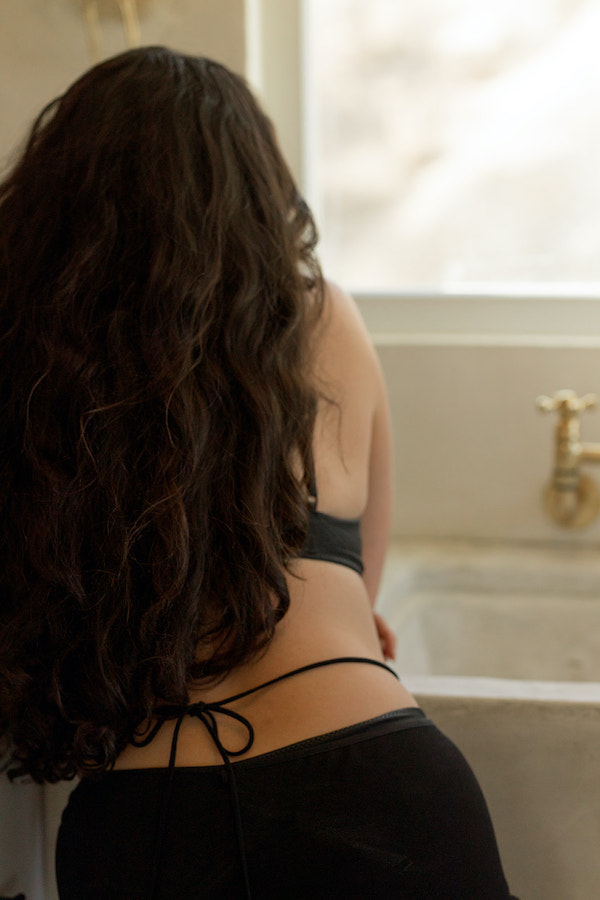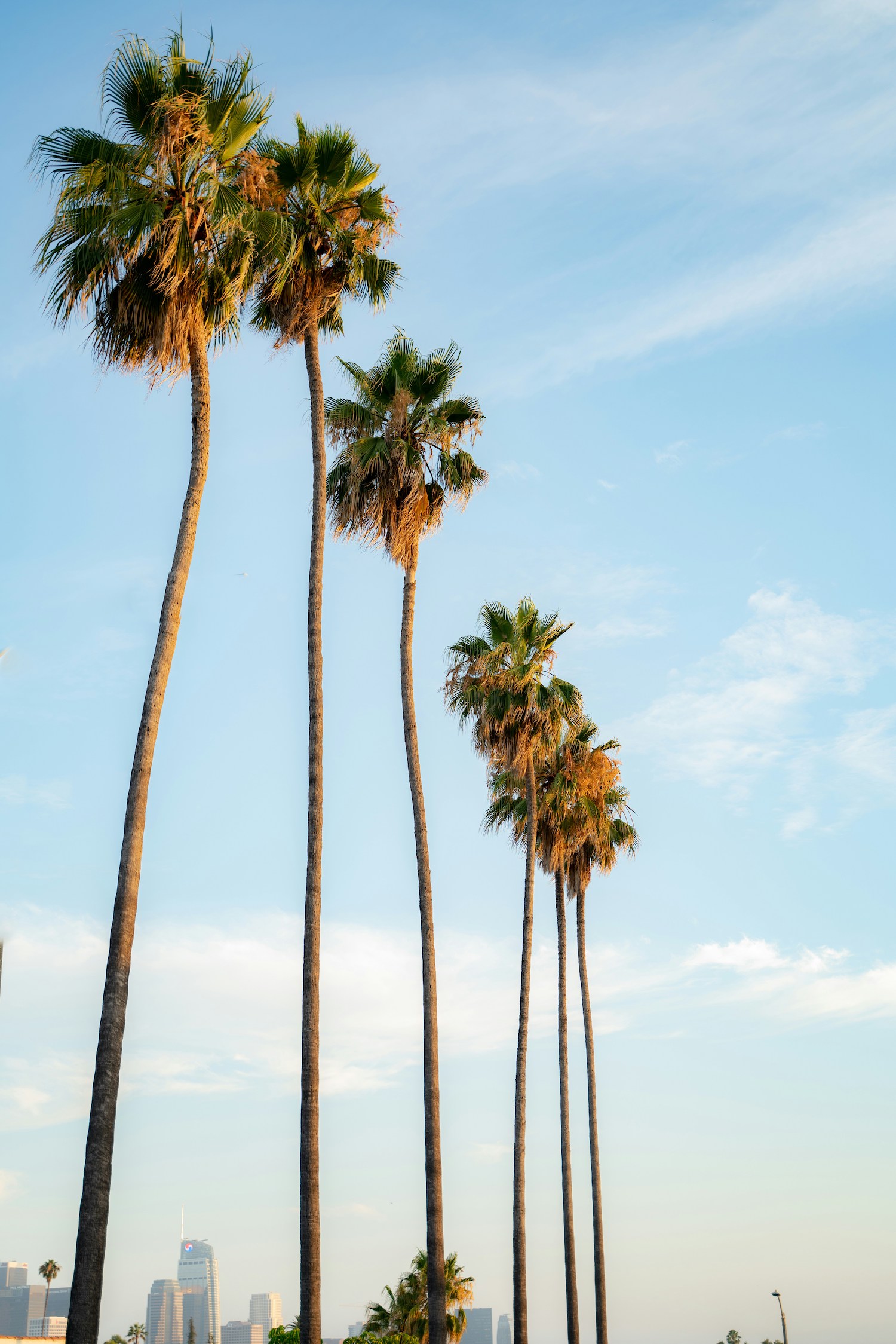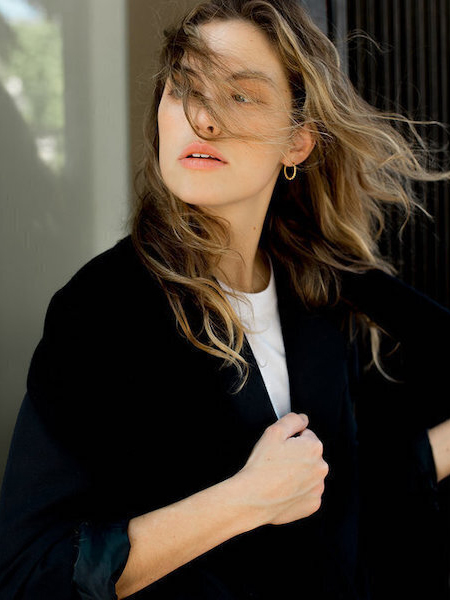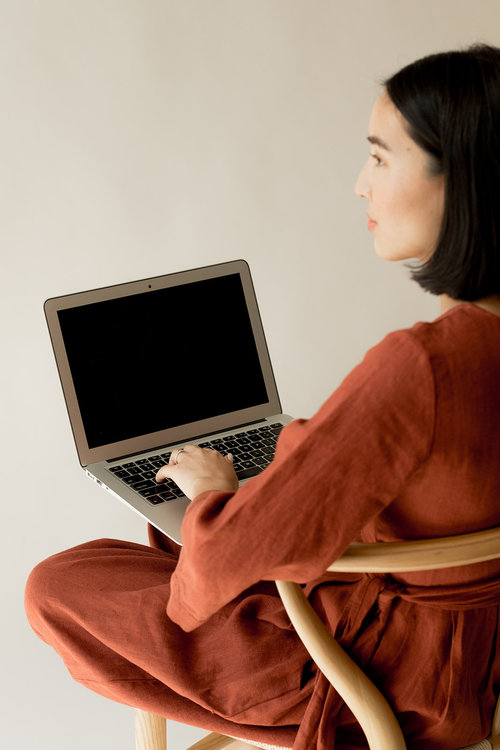
How Do You Know If You Actually Want Kids?
As a child I spent many Crayola-colored days at dining room tables, babbling happily with my friends and family while we sketched pictures of our future lives with chunky markers, hands staining with stray ink. It wasn’t until I became an adult that I looked back and saw the patterns in my play — while others drew pictures of their someday families and houses, I drew myself in front of a big red barn surrounded by animals or exploring stair-stepped city skylines dotted with windows.
I’d glance at my friends’ masterpieces and, in order to match theirs, I’d draw in a partner and a couple kids (plus a babe in my arms with a single swirl of hair for good measure). It was an afterthought, a way to feel like I belonged. Because we’re supposed to want to have kids, right? I didn’t realize there was any other option.
Fast forward to when I got married at the age of 24, my partner and I discussed having kids “in five years.” It remained a five-year idea, never quite a plan, for our ten year marriage which has now come to a close. So here I am, 34 and single, starting over, and revisiting what feels like an impossible question. Do I want kids?
“We’re supposed to want to have kids, right? I didn’t realize there was any other option.”
On the one hand, I’m thankful no children were involved when it came to my divorce. Yet on the other hand, somewhere in my journal, there is a goodbye note to the daughter I imagined I might have someday. I’ve since covered it up with sketches or collages — was it out of shame or sadness or as a symbolic way to let go? I couldn’t tell you.
It’s one of those questions I’d rather avoid answering, but my aging body is telling me I better find some clarity soon. As someone who’s been told fertility might be a challenge throughout her life, I also know it can take up to two years of “trying” before a doctor will recommend you for fertility treatments. That gives me an increasingly small window (and increasingly large pressure) to make a decision that will alter the course of my entire life.
So many of us are in the same existential loop — should we? Shouldn’t we? Why or why not? Others are in a different loop altogether, like folks who want children but for some reason cannot have them, or folks who didn’t want children and for some reason ended up as a parent.
Choice, in this regard, isn’t always available to everyone and a family can include single parenthood, economic challenges, an infertility journey, unexpected guardianship, or loss. One decision results in a package deal — you are facilitating another human being’s existence in this world while also opening yourself up to numerous unknowns. And that includes the unknown that deciding to have kids (or not) doesn’t always mean you’ll get the result you’d hoped for.
“Choice isn’t always available to everyone, and a family can include single parenthood, economic challenges, an infertility journey, unexpected guardianship, or loss.”
Maybe, I think, the fact that I read and think about this often is a sign that I should do it. Being a parent does sound magical. When I meet my friend’s children, my heart bursts: There’s a mini version of one of my favorite people being raised by my favorite people! To watch so many of my friends become parents is one of the most inspiring experiences of my adult life.
Other times, I believe it’s my very hesitancy that’s telling me “nope, newp, not for you.” Is it fear or something else? Perhaps an awareness of what self-sacrifices lie ahead? I wonder if the two aren’t so different. (“But won’t you regret it later?” I get asked. Studies are actually revealing that there’s less regret about being childfree than you’d think.)
But the scariest idea of all, I think, is that you just don’t know what you don’t know. In my own uncertainty, I reached out to a couple of psychologists — one childfree by choice, one a parent — to get their perspective as I explore this question.
“I often wonder what the world would look like if anyone who said ‘I don’t know’ would just allow themself to accept that ‘I don’t know’ isn’t an enthusiastic ‘yes,’ and sit with any discomfort that arises.”
Dr. Stephanie Olarte
“I often wonder what the world would look like if anyone who said ‘I don’t know’ would just allow themself to accept that ‘I don’t know’ isn’t an enthusiastic ‘yes,’ and sit with any discomfort that arises,” says Dr. Stephanie Olarte, a licensed child and family psychologist in Maryland who is childfree by choice. It was a decision she made after being brutally honest with herself, and she invites others to do the same.
For her, the question was whether or not she could accept a reality in which her career was not most important in her life. Olarte works with children, teens, and their parents as they navigate mental health, but she didn’t feel the need to have children of her own, too. “I never wanted the love I have for my job to take a back seat. […] My career revolves around children and teens, AND I don’t feel any pull or yearning to have kids in my home. Both can be true no matter how confusing that is for other people.“
For Olarte, prioritizing a childfree life also meant considering the financial cost of child-rearing, as well as being open to every need a child may be born with or develop over time. Becoming a parent cannot be undone, Olarte notes — a trepidation that certainly I share. But not having children offers a little more wiggle room (even if parenting takes a different shape such as mentorship, fostering, or other guardianship). “If I get to my forties and decide, “damn…I wish I had kids,” I can find a way to make it happen,” she says. “I can probably even do this in my fifties. My current life circumstances are pretty reversible.”
“Not having children offers a little more wiggle room (even if parenting takes a different shape such as mentorship, fostering, or other guardianship). For others though, there is deep joy and fulfillment in that irreversible decision.”
For others though, there is deep joy and fulfillment in that irreversible decision, especially when you get to experience it on your own timeline.
“Deciding to have kids or not is the most significant decision in one’s life,” says John Carnesecchi, a licensed clinical social worker and founder and Clinical Director of a private mental health practice in New York City. And, he notes, it’s a beautiful one. Cue the screeching brakes on my train of thought. It would be nice to leave a little bit of what I’ve learned in the mind of a fledgling person. (It’d also be interesting, although rather unimportant, to see how much of my blonde hair would be passed on).
“Parenthood is a personal growth opportunity to pass along strong family values and teach the next generation,” he says. Carnesecchi, who has a teenage daughter with his husband, offers a handful of helpful questions for making the decision that can serve as practical guided journal prompts.
Look at your goals, careers, and other endeavors, he encourages. “Will it fulfill [your] emotional desires and needs?” he asks. Maybe having children will bring you this emotional fulfillment, and maybe it won’t.
For Carnesecchi and his husband, the answer to whether or not to start a family was an enthusiastic yes. And while he admits they haven’t experienced the fear of missing out (another one of my worries), he notes that it’s normal. “It is a part of the transition to this new phase of your life. Letting go of the old life and reincarnating a new life.”
But that doesn’t mean it’s all sunshine and rainbows.
“Manage your expectations and prepare for the unknown,” Carnesecchi says. “The minute your baby is born, everything changes […] This phase of your life is overwhelming with various feelings of anxiety and being scared. It is ok and absolutely normal, especially being in uncharted territory.”
Carnesecchi advises possible-parents-to-be to practice feeling and accepting these complex emotions, while also practicing mindful self-care and breathing exercises as you navigate this phase. Even after welcoming a child into your home, it’s common to feel disrupted or to experience postpartum depression. (Another key worry of mine, as I’ve been prone to depression throughout my life.)
“The key to parenthood is not to lose yourself, you still are you. You still can enjoy the things you loved pre-children. Parenting is about balance.”
John Carnesecchi, LCSW
“The key to parenthood is not to lose yourself,” he says. Because despite all the change, there is still this truth: “You still are you. You still can enjoy the things you loved pre-children. Parenting is about balance.”
This — the fear of losing myself — weighs heavy on me after years of getting lost in everyone else’s needs but my own. Could I be strong enough to stay Emily in the difficult journey of motherhood and parenting? Will I grieve the loss of getting to know the version of myself I could have been — had I become (or not become) a parent?
This is where it boils down to remembering there are no bad choices. Only choices that lead to the next choice. We are infinitely re-inventing ourselves whether we become parents or not. As Cheryl Strayed reminds us in her essay “The Ghost Ship That Didn’t Carry Us,” we each have a sister life that sails on without us, no matter which way we choose. “I wouldn’t know what I couldn’t know until I became a mom,” she writes. “So I’m certain there are things I don’t know because I can’t know because I did.”
“The fear of losing myself weighs heavy on me, after years of getting lost in everyone else’s needs but my own. Will I grieve the loss of getting to know the version of myself I could have been — had I become (or not become) a parent?”
Ultimately, both Olarte and Carnesecci agree that therapy is a tool that can help you wade through the ambiguity. Because if you’re asking deeply whether or not you should have kids, like I am, it means you might be ready to face the answer with sincerity and grace.
“There is an overwhelming amount of pressure to conform,” says Olarte in hopes that maybe-parents-to-be explore the question deeply. “If nothing else, I would encourage people to compassionately and sincerely ask themselves why.”
After all this, if you’re hoping I’ve found some magic answer to the kids question, I have to disappoint. It’s not a question I can answer for you — and it isn’t one you can answer for me.
The truth for me right now is this: I am starting from a clean slate. There’s time, not as much as there used to be, for me to find a partner who feels right — if that’s I want. There’s time to start a family — if that’s what I want. Yet even if I got pregnant today, I’d be considered a “geriatric pregnancy” which is an outdated term, but being of “advanced maternal age” is terrifying nonetheless. (Footnote for the reader, I did not get pregnant today. 🤣)
My choice may still not yet be made, but in the meantime I’m finding joy in my hobbies, my family and friendships, my work, and of course — my pets. I’m celebrating with my friends who are parents, grieving with friends enduring losses outside of my comprehension, and cheering on anyone who hopes to build their own family. In my moments of deepest doubt, I remind myself there will be love, joy, and community for me on either end of this decision. I believe that, wholeheartedly.
Know that you’re not the only one staring at the blank page in front of you, wondering whether or not to sketch in a little babe. Maybe you’d rather draw in pets, creative aspirations, globe-trotting adventures; maybe a baby comes with! Or perhaps you’d rather give yourself space and not put pen to paper just yet. That’s valid, too.
Whatever and whenever you decide to draw, I hope that your creation is full of richness and vibrancy and life — whether that means you color in a few extra figures or not.
“There will be love, joy, and community for me on either end of this decision.”
Emily McGowan is the Editorial Director at The Good Trade. She studied Creative Writing and Business at Indiana University, and has over ten years of experience as a writer and editor in sustainability and lifestyle spaces. Since 2017, she’s been discovering and reviewing the top sustainable home, fashion, beauty, and wellness products so readers can make their most informed decisions. Her editorial work has been recognized by major publications like The New York Times and BBC Worklife. You can usually find her in her colorful Los Angeles apartment journaling, caring for her rabbits and cat, or gaming. Say hi on Instagram!
